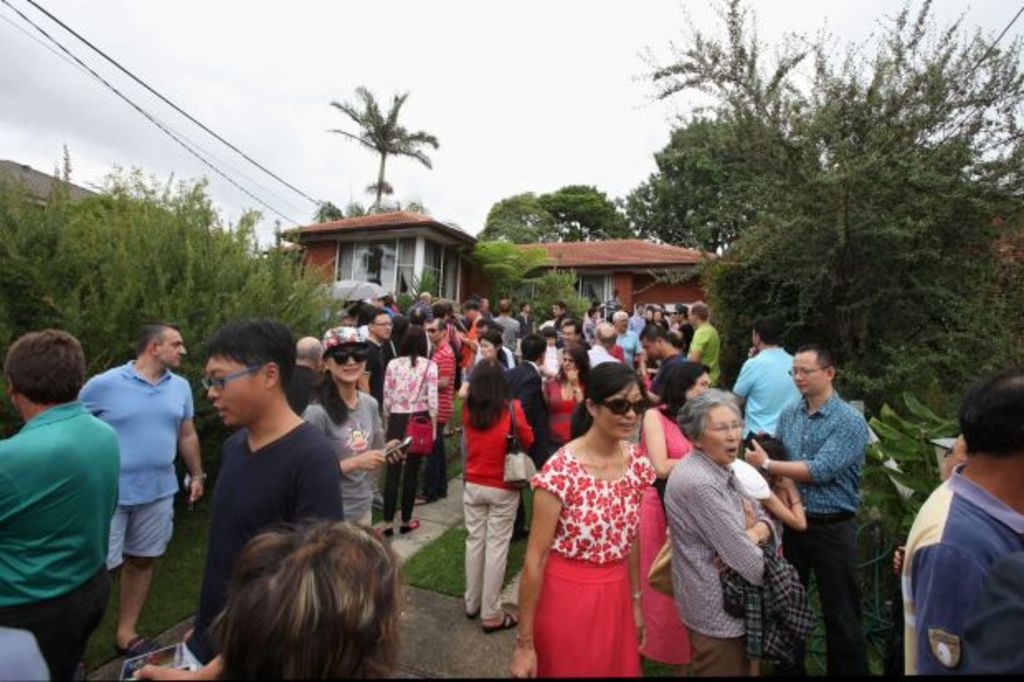Foreign buyers of Australian real estate plummet, Foreign Investment Review Board figures show

The recent boom in real estate sales to foreign buyers is over, with new figures revealing the number of purchases by foreigners has plummeted.
The number of approvals for residential purchases fell by 67 per cent last financial year, according to the Foreign Investment Review Board Annual Report 2016-17, released on Tuesday.
The sharp turnaround in foreign real estate investment follows last year’s state and federal government reforms in which steeper charges on foreign purchases, less favourable tax treatment and a cap on new development sales were introduced.
China remains the largest source of Australia’s foreign real estate investment, followed by Canada in a distant second. The United States, Singapore and Malaysia round out the top five.
The latest figures coincide with the findings of a survey by Swiss multinational investment bank UBS that shows the Chinese buyer boom is over in Australia.
The online survey of 3400 mainland Chinese people, across age and income brackets, revealed an ongoing decline in Chinese buying intentions from the investment peak of 2016.
Global Head of Real Estate Research at UBS Kim Wright said Chinese interest in Australia had moderated, leading to its pacific neighbours like Thailand, Vietnam and Japan seeing growing Chinese demand instead.
Increased stamp duty surcharges for foreigners, a view Australia’s residential price cycle had peaked, and better relative opportunities for investment in other countries were pushing Chinese buyers elsewhere, according to Ms Wright.
There were 13,198 approvals for residential real estate last financial year totalling $25.2 billion worth of investment.
This represents a 65.2 per cent decrease in the value of investment from a peak of $72.4 billion in approvals from 40,149 applications a year earlier.
The number of established homes approved for foreign buyers has also dropped sharply. The 2,008 approved purchases of established homes last financial year is down almost two thirds from the 5,877 established homes approvals of a year earlier.
NSW and Victoria still command almost three-quarters of all foreign investment, with Victoria leading with 41 per cent of investment in residential real estate and NSW at 32 per cent.
The report covers the second half of calendar year 2016 and the first half of 2017. These half years were “like night and day in terms of Chinese investment,” said chief executive of Chinese property portal Juwai.com, Carrie Law.
“In the second half of 2016 Chinese were investing in Australian real estate at an almost irrational pace. It was like money falling from heaven for vendors and developers.
“In early 2017 capital controls, financing restrictions, and foreign buyer taxes reduced Chinese investment to more reasonable levels.”
Sydney’s prestige market saw a distinct turnaround in foreign buyer sales following the state government’s decision last year to double the stamp duty surcharge to 8 per cent for foreign buyers.
Residential real estate now accounts for 13 per cent of all foreign investment, compared with the 28 per cent in the services industry and 21 per cent made up by the manufacturing, electricity and gas sector.
The introduction of application fees for foreigners in late 2015 also saw the number applications by foreign buyers plummet more than 67 per cent in 12 months.
The report outlines that the drop in applications is largely due to buyers only applying for properties they intend to purchase, rather than a drop in actual investment.
Foreign buyer breaches
The number of foreign buyers who breached the rules of foreign investment almost doubled in 2016-17 to 549 cases, up from 260 breaches the year prior.
Those breaches led to 96 divestment orders, up from 54 the year before.
More than half of the divestment orders related to property in Victoria, with NSW accounting for only one-fifth of forced divestments.
China’s policy impacts
Ms Law said China’s capital controls may not last long.
“China’s capital controls have worked,” she said. “Today, China’s foreign reserves are up, the Yuan is stronger, the flow of money out of the country has been reduced, and fears of a devaluation have virtually disappeared. But they have succeeded without having to make it impossible for ordinary Chinese families to buy property overseas.
“Now, the environment is changing. Rather than threatening further capital controls, the government is hinting it may unwind them. Buyers are beginning to anticipate a time, perhaps this year, when investing overseas again becomes easier.”
We recommend
We thought you might like
States
Capital Cities
Capital Cities - Rentals
Popular Areas
Allhomes
More







